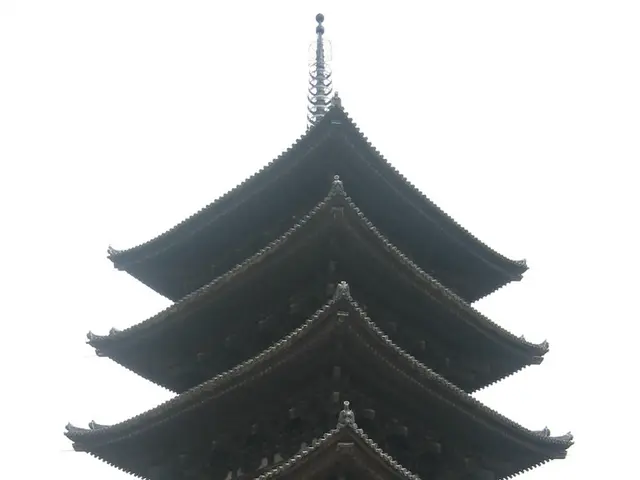U.S. authorities are reaping a portion of the revenues generated by Nvidia and AMD's AI chip sales to China.
In a groundbreaking move, tech giants Nvidia and AMD have agreed to share a significant portion of their revenues from the sale of specific high-end AI chips in China with the U.S. government. This unprecedented revenue-sharing deal, tied to export licenses, marks a significant shift in the AI chip race narrative.
According to the agreement, Nvidia will share up to 15% of its revenue from sales of the H20 AI chip in China with the U.S. government. AMD, on the other hand, will do the same for the MI308 chip. This arrangement allows the firms to legally sell these chips to Chinese customers under U.S. export controls.
The deal, publicly confirmed in August 2025, originated after Nvidia CEO Jensen Huang met with then-President Trump. The initial proposal was for a 20% cut, but negotiations resulted in a 15% revenue share, with President Trump emphasising that the revenue would benefit the United States rather than himself personally.
The government's rationale for this deal ties to national security concerns, aiming to limit China's access to advanced semiconductor technology critical for next-generation weapon systems. It is worth noting that such revenue-sharing linked to export licenses is highly unusual, as traditionally export licenses do not include fees or require sharing revenue with the government.
| Company | AI Chip Covered | Revenue Share to U.S. Government | Key Points | |--------------|-----------------|-------------------------------|-----------------------------------------------------------------| | Nvidia | H20 | 15% | Deal struck after Nvidia CEO met President Trump; unusual deal | | AMD | MI308 | 15% | Same revenue-sharing framework agreed, timeline less public |
Both Nvidia and AMD have stated they follow U.S. government rules for export and international markets. While Nvidia has not shipped the H20 chip to China recently, they hope the export controls allow continued competition globally.
The Trump administration's continuation of the restrictions on chip exports, which began under the Biden administration, was aimed at keeping the most advanced AI training hardware out of China's hands and preventing a boost to its military AI programs. The Biden administration imposed sweeping export controls in October 2022 to block China from obtaining the most advanced AI chips and manufacturing equipment.
However, with this new revenue-sharing agreement, the U.S. government has started issuing licenses for the sale of Nvidia and AMD's chips in China. President Trump referred to Nvidia CEO Jensen Huang as "a brilliant guy" during a press briefing on Monday, confirming the arrangement. This repeal of years of restrictions on chip exports is essentially what we're seeing now, marking a significant shift in the AI chip race narrative.
Read also:
- Elon Musk accused by Sam Altman of exploiting X for personal gain
- Tech tycoon Elon Musk alleges Apple is preferring OpenAI, sparking potential lawsuits contemplation
- China's Automotive Landscape: Toyota's Innovative Strategy in Self-Driving Vehicles
- Tech mogul Erik Bergman, founder of Great.com, contributes a million dollars to clean water initiatives in Africa.







